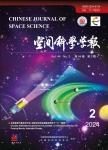SDGSAT-1: Capabilities for Monitoring and Evaluating SDG Indicators
作者机构:International Research Center for Big Data for Sustainable DevelopmentBeijing 100094 Key Laboratory of Digital Earth ScienceAerospace Information Research InstituteChinese Academy of SciencesBeijing 100094 University of Chinese Academy of SciencesBeijing 100049
出 版 物:《空间科学学报》 (Chinese Journal of Space Science)
年 卷 期:2024年第44卷第4期
页 面:677-686页
核心收录:
学科分类:08[工学] 082503[工学-航空宇航制造工程] 0825[工学-航空宇航科学与技术]
主 题:SDGSAT-1 Earth observation Remote sensing SDGs
摘 要:SDGSAT-1,the world s first science satellite dedicated to assisting the United Nations 2030 Sustainable Development Agenda,has been operational for over two and a half *** provides valuable data to aid in implementing the Sustainable Development Goals *** its Open Science Program,the satellite has maintained consistent operations and delivered free data to scientific and technological users from 88 *** program has produced a wealth of scientific output,with 72 papers,including 28 on data processing methods and 44 on applications for monitoring progress toward SDGs related to sustainable cities,clean energy,life underwater,climate action,and clean water and ***-1 is equipped with three key instruments:a multispectral imager,a thermal infrared spectrometer,and a glimmer imager,which have enabled ground-breaking research in a variety of domains such as water quality analysis,identification of industrial heat sources,assessment of environmental disaster impacts,and detection of forest *** precise measurements and ongoing monitoring made possible by this invaluable data significantly advance our understanding of various environmental *** are essential for making well-informed decisions on a local and global *** its application to academic research,SDGSAT-1 promotes global cooperation and strengthens developing countries capacity to accomplish their sustainable development *** the satellite continues to gather and distribute data,it plays a pivotal role in developing strategies for environmental protection,disaster management and relief,and resource *** initiatives highlight the satellite s vital role in fostering international collaboration and technical innovation to advance scientific knowledge and promote a sustainable future.



